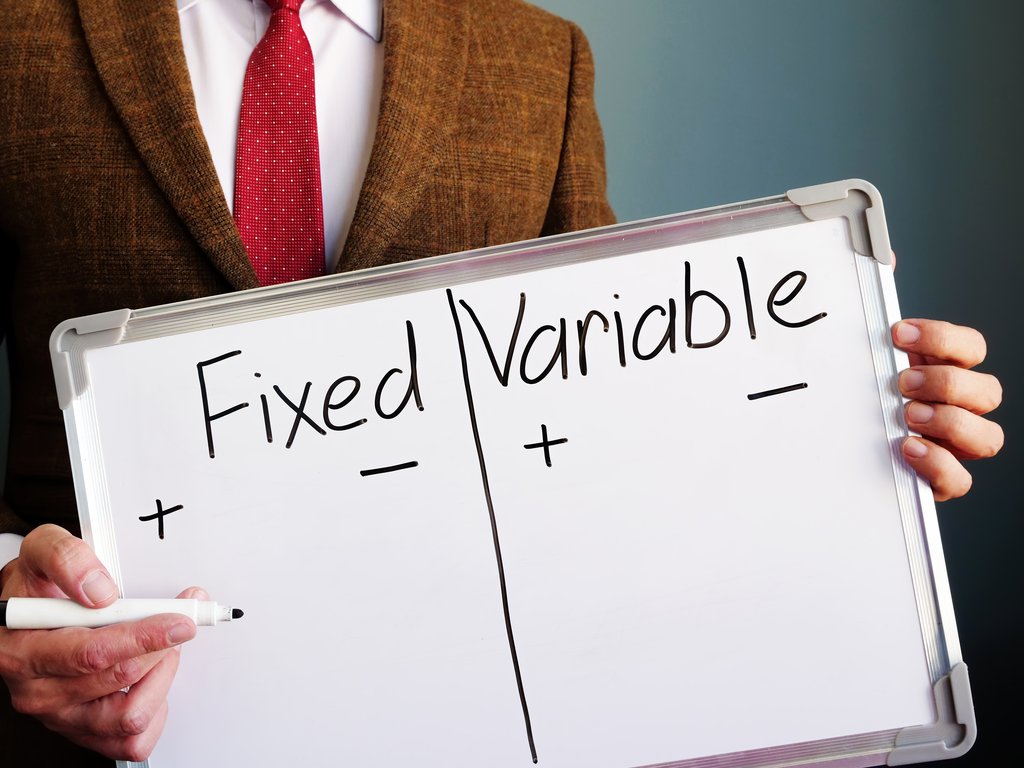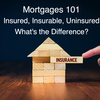Is a Variable Rate Mortgage Right for Me?

Should You Choose a Variable Rate Mortgage or a Fixed Rate Mortgage?
As fixed mortgage rates continue to climb, homebuyers looking for a new mortgage to purchase a home, and homeowners looking to refinance their existing mortgages, have to work fast to get low rates while they still can. Fortunately, even while rates on fixed-mortgages keep increasing, rates on variable mortgages are remaining steady at record lows.
Since the start of the pandemic, rates for fixed-mortgages in Canada have not increased, until the start of 2021. In fact, fixed rates have grown by an average of 40 basis points (0.40%) since January of 2021.
Steven Tulman, President of Clover Mortgage Inc. says
“Homeowners who are currently locked into a higher fixed rate mortgage have been turning to Clover Mortgage asking whether they should consider a mortgage refinance at a lower variable rate since rates of some lenders have dropped their variable rates on mortgage refinances to as low as 1.55%
We are also finding that more and more homebuyers are asking the question, “Should I get a variable rate mortgage or a fixed rate mortgage for my new home purchase?”
Given the current situation, it is a good idea for homebuyers to consider variable rate mortgages when appropriate. It is important to note, that just because variable rates are considerably lower than the fixed rates these days, a variable rate mortgage may not be the right choice for everyone.”
Why are fixed rates going up and variable rates falling?
Fixed-rate mortgages often adhere to Canadian bond yields, which are closely tied to bond yields in the US. When optimism in the economy improves, investors take money out of safer investments like bonds and into riskier investments like stocks. As the demand for bonds slumps, bond prices drop and yields increase. Since both the Canadian and US bond yields have been growing steadily over the past few months, fixed mortgage rates have been increasing steadily.
Variable mortgage rates, on the other hand, mirror the Bank of Canada’s overnight lending rate, which is the rate that lenders use to supply overnight loans to each other. When this overnight interest rate changes, changes in the prime rate follow. The prime rate is what the banks use as a guide to price their variable rate mortgages.
Under weak economic conditions, the Bank of Canada may drop its overnight lending rate. In fact, the central bank has already confirmed it has no intention of raising the rate until 2023, in order to support economic recovery after the pandemic. On March 10, 2021, the bank held the rate at the record-low of 0.25%. Low rates are likely to continue given the persisting instability of the COVID-19 crisis. This is good news for homebuyers taking out variable mortgages.
What are there risks of a variable rate mortgage?
Variable-rate mortgages may fluctuate alongside changes in the prime rate, unlike fixed-mortgage rates, which remain the same for a pre-set number of years.
Although variable rate mortgages tend to have the lowest prepayment penalties, typically being only 3 months of interest payments, there may also be other costs for trying to get out of a variable loan before the date of maturity. However, fixed-rate mortgages may at times have even greater prepayment penalty costs associated with them.
For fixed mortgages, you might be obligated to pay an interest-rate differential or 3 months of interest payments, depending on which is greater. This clause depends on which lender and what kind of mortgage product you sign up for.
The interest differential is calculated based on the difference between how much interest rates have fallen since you originally took out the mortgage multiplied by the time remaining on your current mortgage term. This can result in thousands and even tens of thousands of dollars in prepayment penalties that the homeowner would have to pay. This can be confusing and your mortgage broker can help calculate the right penalty for you.
“I recommend that all homebuyers, especially first-timers, get help from a mortgage broker who can walk you through all of the short-term and potential long-term costs that come with home ownership and a mortgage.
First-time homebuyers are more likely to break a mortgage after the first few years in order to upgrade to a larger home. As a result, we see many first time homebuyers incur penalties after only having their home for 2 or 3 years because they were not properly advised by their previous mortgage professional. If you are purchasing your first home, you may decide to opt for a shorter term ( 2 years or 3 years) fixed rate mortgage rather than a 5-year solution.
If you are planning on getting a variable rate mortgage, then in most cases a 5-year term is the right choice since you will be getting a lower rate than with a 2 year or 3 year term, and the breaking penalty will likely be very low at any given point in time.” says Steven.
Why Are Variable Rates Less Popular?
Fixed mortgage rates assure borrowers that their rate and amortization will remain the same for a predetermined time. Variable mortgages come with the risk that when economic conditions improve, the rate may increase.
Cody Krieser, Principal Broker and head of Clover Mortgage's commercial mortgage division says
"For a long time variable rates hovered in and around the same range as fixed rates. As a result, homebuyers had a tendency to “play it safe”. However, statistically, about 80% of variable rate mortgages saved borrowers money in the long run as compared to their fixed rate counterparts.
These days we are seeing a significant preference to variable rates given the predictions for the economy over the next few years."
Clover Mortgage can help you decide whether it is the right time to invest in a variable mortgage. Our experienced and knowledgeable mortgage brokers will help find the best option for you, and will advise you on whether a variable rate mortgage or fixed rate mortgage is the better choice for you based on your current needs and long term goals.





